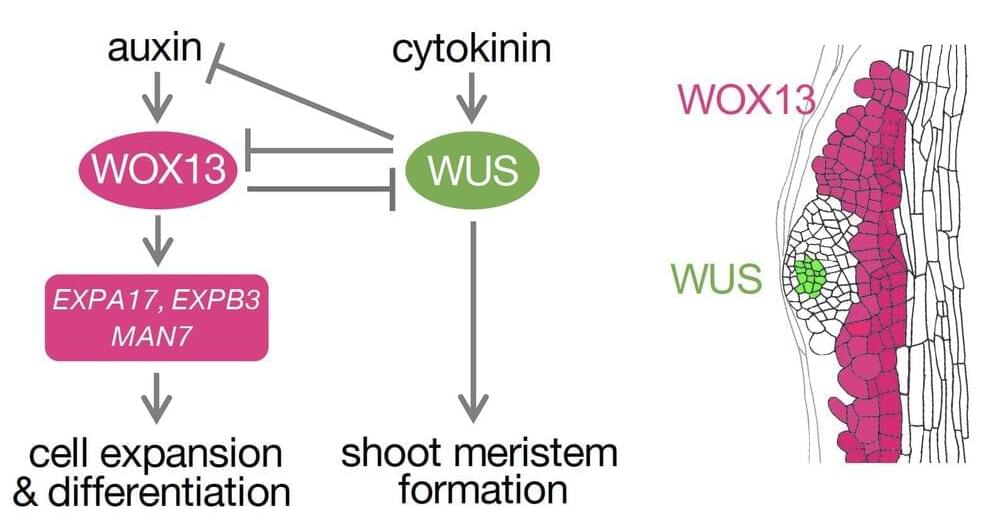Plants have the unique ability to regenerate entirely from a somatic cell, i.e., an ordinary cell that does not typically participate in reproduction. This process involves the de novo (or new) formation of a shoot apical meristem (SAM) that gives rise to lateral organs, which are key for the plant’s reconstruction.
At the cellular level, SAM formation is tightly regulated by either positive or negative regulators (genes/protein molecules) that may induce or restrict shoot regeneration, respectively. But which molecules are involved? Are there other regulatory layers that are yet to be uncovered?
To seek answers to the above questions, a research group led by Nara Institute of Science and Technology (NAIST), Japan studied the process in Arabidopsis, a plant commonly used in genetic research. Their research—which was published in Science Advances —identified and characterized a key negative regulator of shoot regeneration.
